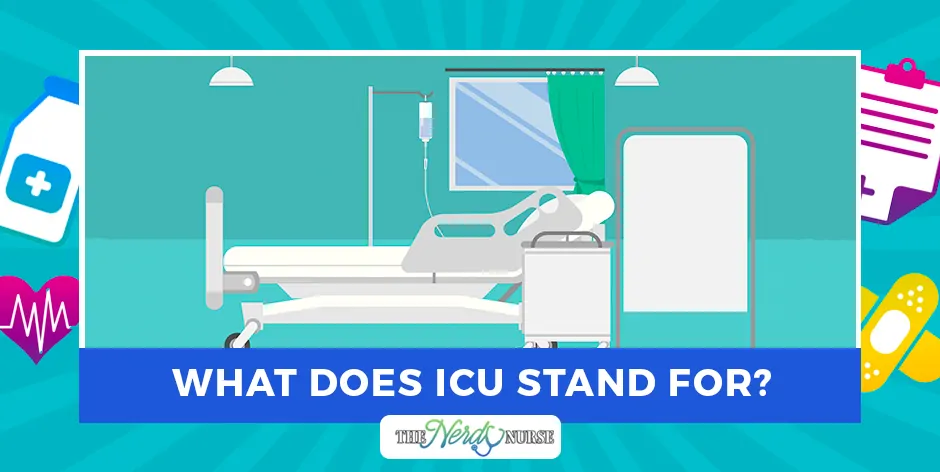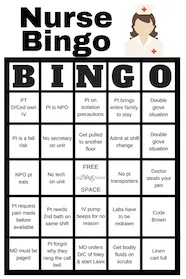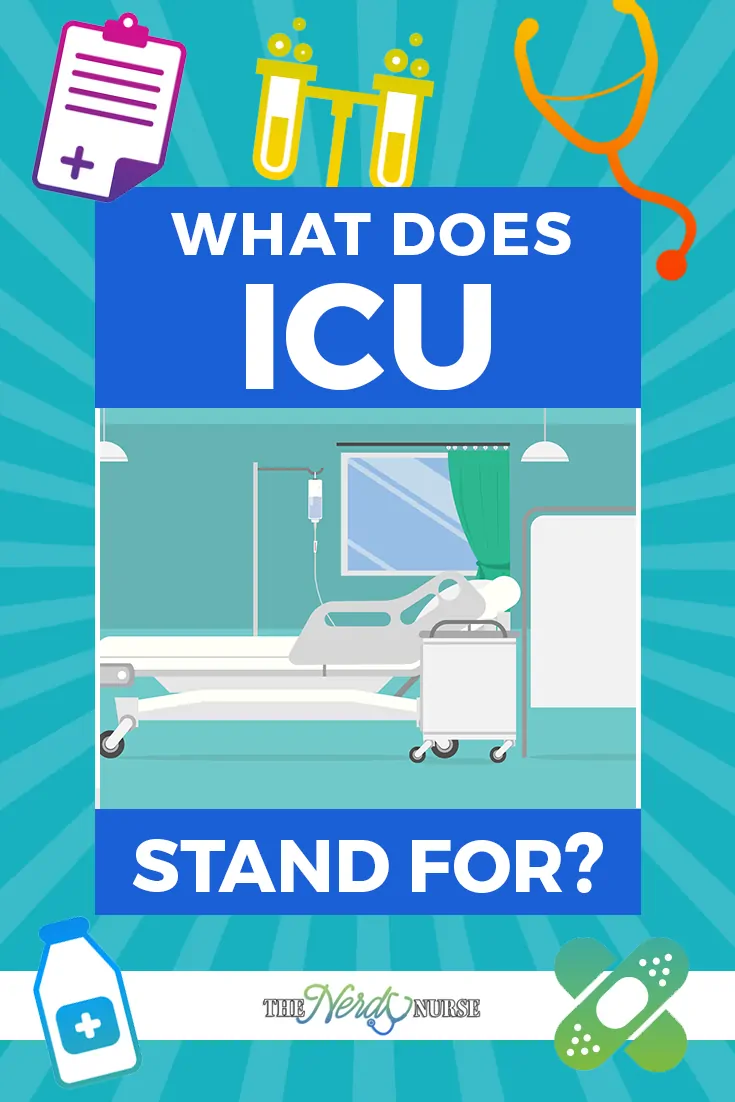Let’s just get this out of the way, because you probably landed on this page by Googling “What does ICU stand for?” So here’s your answer: ICU stands for Intensive Care Unit.
When entering a hospital, you are immediately inundated with medical jargon, confusing terms, and many abbreviations. Before you know it your head is spinning and you need a medical dictionary just to keep things straight! Medical and healthcare professionals like to use abbreviations and jargon to save themselves the time it takes to write or speak the full terms over and over. Unfortunately, this can get very confusing for patients and families to keep it all straight in their minds.
The ICU is a very commonly used abbreviation in hospitals, and when used is often met with confusion by patients and their families.

The ICU is a specialized unit in the hospital where the sickest patients go and are cared for round the clock by a team of skilled professionals using the specialized medical equipment.
What kind of patients are in the ICU?
The IC in ICU stands for Intensive Care which means it cares for people who are critically ill. But what does this mean?
Patients who are unable to regulate their organ systems are critically ill. This means that perhaps their blood pressure is too low and they need a constant supply of medication to keep it at a healthy level. Or maybe they are no longer able to breathe adequately. They may require assistance with a specialized mask or a ventilator to stay alive.
Sometimes a medical condition or infection can cause a patient to become sick enough to need the care of the ICU. Diabetic ketoacidosis (when a patient’s diabetes gets out of control) or Sepsis (when an infection spreads to the patient’s entire system) are two common reasons patients may require ICU care.
Lastly, people who are in serious accidents will often require the ICU. Excessive blood losses, damage to the internal organs, or brain injuries are common reasons accident victims are admitted to the ICU
What kind of staff work in the ICU?
The ICU is staffed by specialized doctors, nurses, respiratory therapists, and other health professionals who are trained to provide intensive care around the clock. Nurses receive special critical care training and care for only one or two patients at a time, compared to the 6 or more patients they would usually care for on a regular medical or surgical floor.
Many doctors work in the ICU including anesthetists, intensivists, cardiologists, nephrologists, and endocrinologists. Each specialist will care for a patient in their area of expertise, for example, a cardiologist will care for someone who has had a heart attack, and an endocrinologist will care for the diabetic patient.
Other health professionals include pharmacists, physiotherapists, speech-language pathologists, and social workers. Each of these professionals will work together to give the ICU patients comprehensive and intensive care.
Sights and sounds of the ICU
Intensive care requires the use of many pieces of equipment including cardiac monitors, ventilators, IV pumps, and specialized hospital beds.
Cardiac monitors are machines that continuously monitor a patient’s vital signs including their heart rate, respiratory rate, blood pressure, oxygen saturation, and temperature. If any of these measurements enter a dangerous range the monitor will alarm letting the nurse know. Some alarms are critical, while others are not and it can be distressing for patients and families to hear these bells when they are not sure what they mean.
Ventilators are special “breathing machines” that can either completely take over breathing for a patient or assist a patient to breathe more effectively. A patient on a ventilator will have a tube that enters their mouth and goes down their throat into their lungs. The soft whooshing sound of the ventilator and the warm bubbling of water for hydrating the air can be very relaxing.
ICU patients are often connected to multiple IV pumps. These pumps deliver lifesaving medications or fluids to the patient. They sometimes alarm because they have run out of fluids or because something has gone wrong with the pump. When working well, they make a soft clicking sound at different speeds.
Patients in the ICU are at high risk for bed sores from lying in bed all the time, so they are often given specialized beds to rest in. These beds are filled with air and are always filling and emptying in different locations. If patients are confused, and the nurses are concerned they might try to get out of bed on their own, sensors are turned on to detect a change in the weight distribution on the bed.
While there are many confusing abbreviations in hospitals, ICU remains one of the most common abbreviations that cause confusion for patients and their families. ICU stands for Intensive Care Unit which means that very sick patients are cared for by intensively trained medical staff, using specialized equipment.
Breakthrough ICU
Just started in the ICU and want to feel more confident? Perhaps you’ve been working in the ICU for years and just want to top off your knowledge? Or maybe you’re interested in a specialty change and ICU sounds exciting. If you’ve answered YES to any of these, Breakthrough ICU is for you!

For more information on what does ICU stand for, check out:
- The Real ICU Nurse Job Description
- Can a Nurse Refuse Treatment of a Patient
- Care Beyond Treatment
- What do ICU Nurses Do?
Critical Care: A New Nurse Faces Death, Life, and Everything in Between


Download Nurse Bingo Today!

Liven up any shift with a fun game of bingo. See who can fill a row first!
Fill a whole card and lose grip with reality.
Your privacy is protected. We will never spam you.









Hi Brittney!
Had to leave a quick comment to let you know that I LOVE your blog!!
I’m a nurse educator from Connecticut, looking to start my own and I have to tell you that your content, focus and flavor! Nice job:)